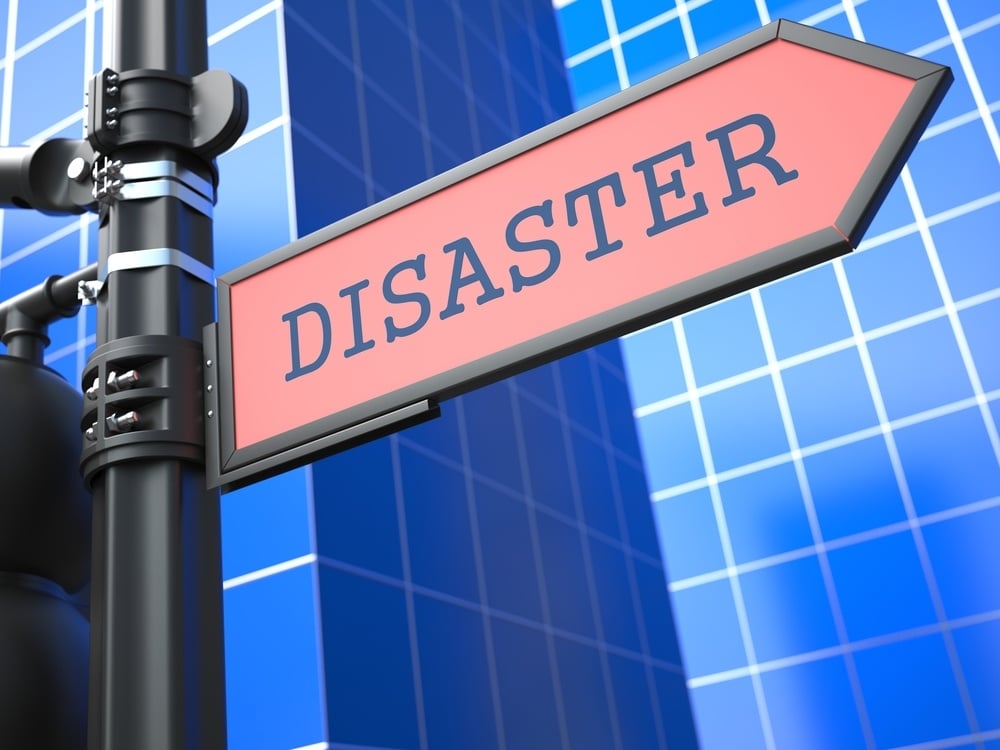Business Tax Preparation Tips
Properly preparing for the busy tax season is critical to running a successful small business. By taking the time to engage in tax preparation and...

In today's unpredictable world, having a business disaster recovery plan is not just a precaution—it's a necessity. Imagine the devastating impact of a sudden natural disaster, cyberattack, or unforeseen health crisis on your business operations. Without a well-structured emergency preparedness strategy, the road to recovery can be long and costly.
This Huddle Business Capital blog article discusses ways to prepare your business for disasters and the challenges they can present. With some planning and preparation, you will be better able to protect your business and keep your employees healthy in the face of unexpected events.
The first step in disaster planning is determining potential risks specific to your area. This will be based on your business's location, specifically the location's historical disaster data and information. For example, if your company is located along the coast or near a lake or river, it might be at risk for flooding during heavy rainfalls or storms. Additionally, if your business is in an area known for seismic activity or sits on a known earthquake fault line, it may be susceptible to property damage during seismic events.
Once you determine the disaster risks for your business and area, you can devise ways to safeguard your business operations and workers. For example, your risk management plan might include employee training/awareness on emergency response, facility upgrades to mitigate risks of damage and workplace injury, and protocols to keep your business operating during and after a disaster.
When a significant weather event occurs, such as an earthquake, flood, or hurricane, it can wreak havoc on the physical structure of your business. Therefore, consider a range of potential physical improvements that can enhance the resilience of your building. Every business is unique, and its level of disaster risk will be determined by its geographical location and infrastructure. Here are some of the many physical improvements to consider for your business:
A disaster can create a whirlwind of stress and anxiety for you and your employees. Everyone will likely worry about the safety of family members, friends, and pets and the condition of homes and vehicles. Training sessions and drills provide an opportunity to educate employees about the procedures they need to follow during different types of disasters.
While no amount of training can fully eliminate the worry associated with a disaster, good preparation can help alleviate feelings of uncertainty. You can ensure everyone knows their role and responsibilities by familiarizing them with the disaster plan and conducting training, drills, and simulation exercises. Additionally, consider contacting your local authorities, who can provide resources and guidance to help you implement your disaster training plan.
If a disaster occurs in your area, your business must have the appropriate supplies. This can help ensure your staff's safety until the emergency has subsided or passed. Commonly stored supplies include water, non-perishable food items/canned foods, first aid kits, flashlights with extra batteries, light sticks, essential tools, hygiene supplies, and communication devices. Keep an updated inventory and ensure that your supplies are replaced when needed to avoid expiration.
You cannot afford to let a disaster—a natural event like a flood or earthquake or a human-made one such as a cyberattack— compromise your company's data and documents. One effective strategy is to use cloud-based storage services. By securely storing your documents and data in the cloud, you can ensure they are backed up and accessible anytime, even during challenging times.
Other less secure storage options for company data and documents include file cabinets and hard drives. File cabinets can be illegally accessed by unauthorized individuals and/or damaged or destroyed during a disaster. Hard drives also come with their own set of concerns. They are at risk for crashes or malfunctions, theft, and physical failures due to heat or moisture.
Business insurance is an investment that can be extremely helpful if your company is affected by a disaster. Now is the time to review your business's current coverage to see if your business's disaster risk assessment warrants any additional coverage. In addition to general liability insurance, you might consider coverage for business interruption and/or property damage. Lastly, take photographs of your business's inventory, furniture, fixtures, equipment, and workspace, and have your business appraised every couple of years.
This Huddle Business Capital blog article is purely educational and contains general information and opinions; it is not intended to provide advice or recommendations of any kind.

Properly preparing for the busy tax season is critical to running a successful small business. By taking the time to engage in tax preparation and...

The holiday season is often the most wonderful time of the year—for small businesses. It's a time when savvy business owners do more than put up...

As the calendar turns over to a new year, many people make resolutions to improve themselves and their lives. While New Year's resolutions are often...